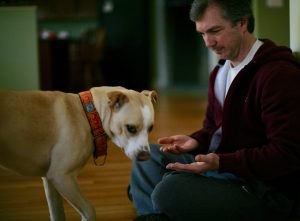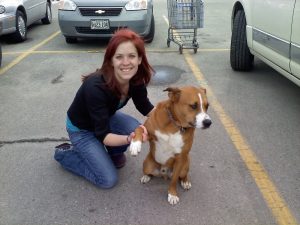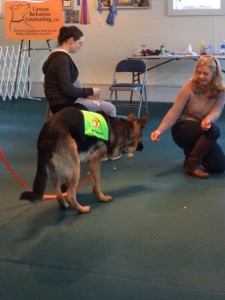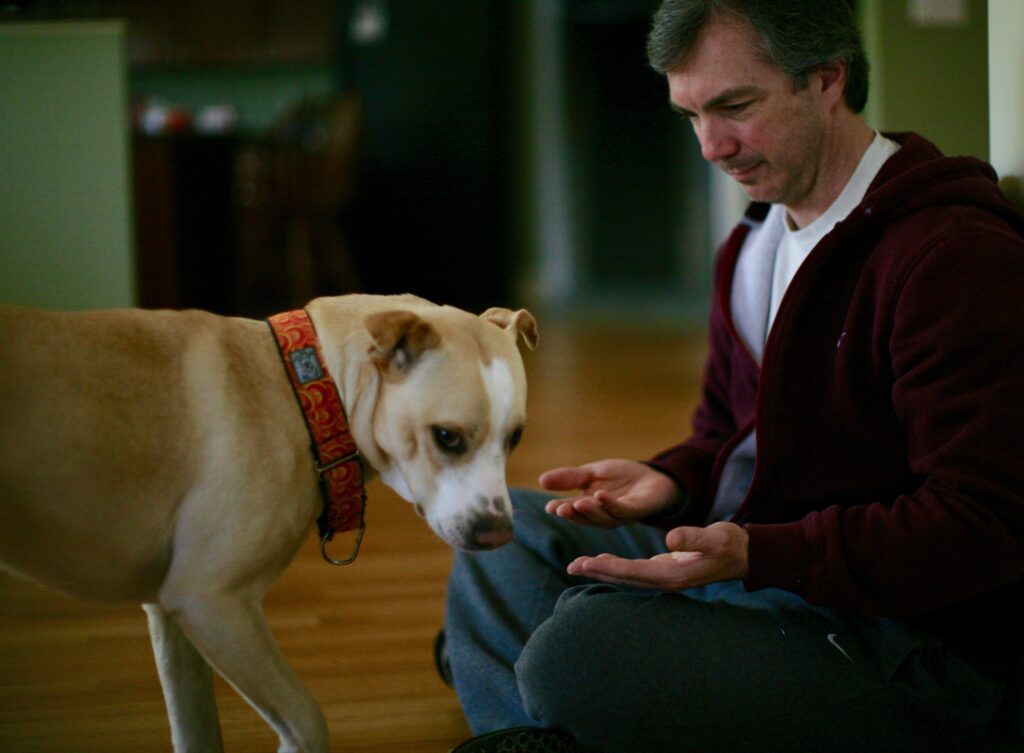
I continually see the need for more education in cases of dog aggression towards humans. For some reason, when a dog growls at a human, the human’s response is to yell, hold them down or force it into confinement. Many clients admit this scolding has caused an increase in stress when the dog is near unfamiliar people.
As I perform more Bite Risk Assessments, I have discovered that many of these dogs have a common personality trait. Each one displayed a preference to only be near familiar people. They do not like strangers approaching them or touching them. As pups, they tolerated strangers entering their space and patting their heads, even though they tried to pull away or bite the strangers hand. What if we were to ask each dog, “How do you feel about me?” I repeatedly ask the cute dog in this video that question, and he repeatedly tells me: “No thanks!”
Give the dog a choice.
Young dogs tolerate our rude handling until they reach adolescence, then they begin to lunge, growl, air snap and rush the door with rapid barking.
Stress effects tolerance:
Like humans, a less social dog will be more stressed when near a group of people. This can lower his tolerance. This is why many dog bites occur in group settings. Be aware of a dog who is avoidant or hesitant to come into your space. He may turn his head or lean his body away from you. He may compress to the ground, as he attempts to walk away or he may roll on his back, tuck his tail,  and straight leg your arm as you attempt to touch him.
and straight leg your arm as you attempt to touch him.
Dogs who have a strong preference for only familiar people, are more likely to bite because we continue to socialize them. You cannot change a dogs sociability if they do not want to be social. When we try to force it, we are just making these dogs more aggressive, more territorial and in some cases reactive.
If your dog is showing signs of avoidance or aggression to strangers:
- Keep them safe, add a “DO NOT PET”sleeve on their collar or harness.
- Step in front of strangers and ask them to ignore your dog.
- Have strangers toss chicken to the dog and if the dog chooses, he can take food from their hand.
- If your dog remains an arm length away from the stranger, call your dog away and reward.
- Over time, your dog will learn to trust that you will prevent strangers from getting too close, so he does not have to lunge to keep people away.
 If your dog is already territorial in the car, yard, or house, you can have visitors toss chicken to your dog so they begin to see visitors as a predictor of something good rather than annoying. Keep in mind, counter conditioning how a dog feels about strangers will take time, even years. Be patient and celebrate the small successes.
If your dog is already territorial in the car, yard, or house, you can have visitors toss chicken to your dog so they begin to see visitors as a predictor of something good rather than annoying. Keep in mind, counter conditioning how a dog feels about strangers will take time, even years. Be patient and celebrate the small successes.
For more information click here: Training for the Territorial Dog


